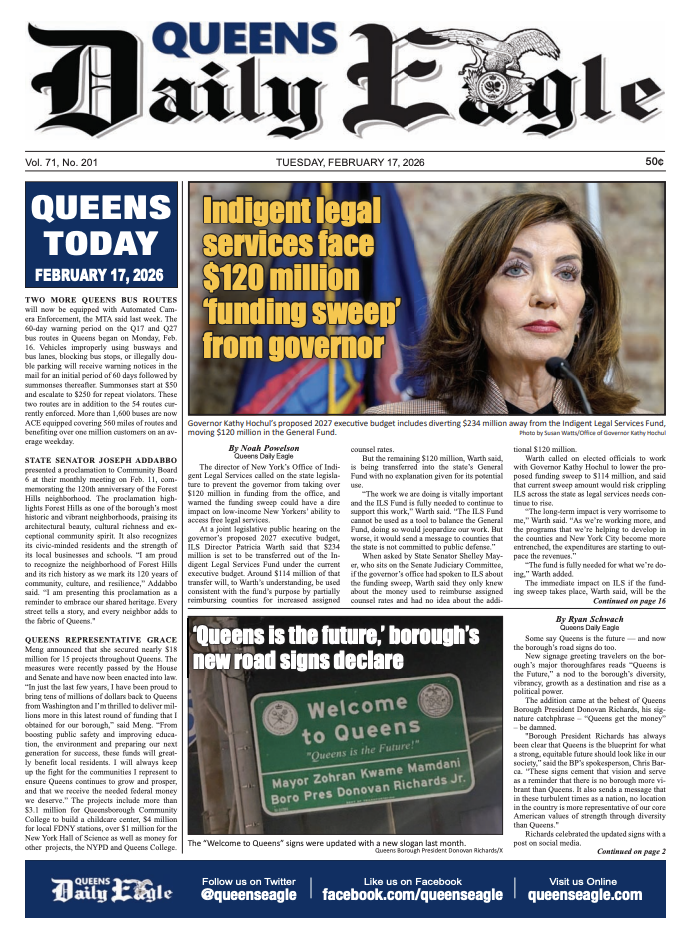High Court Affirms Decision In Racial Bias Suit Against Oscar De La Renta
/A Queens Supreme Court Civil Term jury awarded a woman more than $30,000 in damages in a 2016 racial discrimination lawsuit decision against the fashion brand founded by Oscar De La Renta (pictured with First Lady Nancy Reagan in 1988). The Second Department upheld that decision this week. Photo via the U.S. National Archives.
By David Brand
A state appeals court on Wednesday upheld a Queens Supreme Court jury’s 2016 decision in a racial discrimination lawsuit that forced fashion brand Oscar De La Renta LLC to pay thousands of dollars in punitive damages and more than $100,000 in plaintiff’s legal fees.
Four judges from the Appellate Division, Second Department unanimously dismissed Oscar De La Renta’s appeals.
Former Oscar De La Renta employee Erica Diggs, who is African-American, said her white coworker at the company’s Kennedy Airport warehouse used racial slurs, including the N-word, to refer to staff members.
“Twice on the second day of work, she heard Elezay … utter the [N-word]” to a colleague, according to court documents from 2014. Diggs confronted Elezay and told her not to use the word.
“Don’t tell me you’re offended,” Elezay responded, according to court records. “I wasn’t using it toward you.”
Diggs told her manager Cindy Cheek about the racist abuse and a few days later, Cheek fired Diggs, according to court documents.
Diggs got the job through a staffing agency and worked for the company for eight days in April 2012, according to court documents. She filed a lawsuit against the company, Elezay and Cheek in 2013.
A Queens Supreme Court jury ruled in favor of Diggs, awarding her $2,940 for compensatory damages and $28,500 for punitive damages. In May 2016, Justice Allan B. Weiss ordered Oscar De La Renta to pay $115,603.73 in legal fees.
The fashion brand appealed the decision, arguing that the punitive award and legal fees were too high. The panel of four Second Department judges unanimously dismissed that appeal Wednesday.
“We determine that there was legally sufficient evidence to support the jury verdict, and, additionally, the verdict was not against the weight of the evidence,” the court wrote in its decision. “Moreover, we find that the punitive damages award was not excessive.”
The judges said that the Supreme Court is generally best positioned to determine what constitutes reasonable attorney’s fees. Diggs initially sought nearly $239,000 in attorney’s fees, but Weiss decided to award roughly half that amount.
The Second Department judges considered that an appropriate decision.
“In any civil action commenced pursuant to the New York City Human Rights Law, ‘the court, in its discretion, may award the prevailing party reasonable attorney’s fees, expert fees and other costs,’” the judges wrote. “The Supreme Court considered the relevant factors and providently exercised its discretion in granting that branch of the plaintiff’s motion to the extent of awarding the sum of $115,603.73.”




